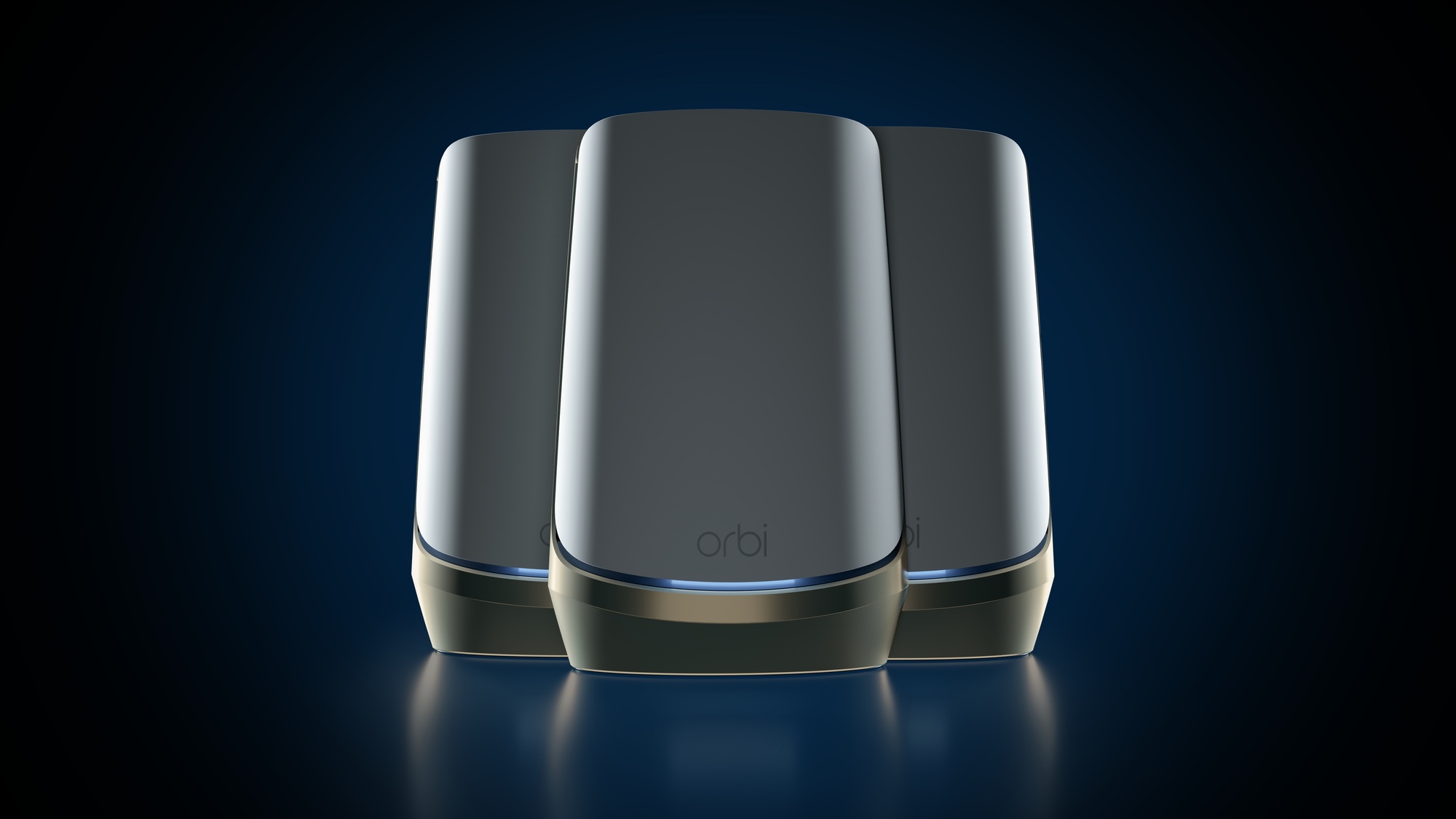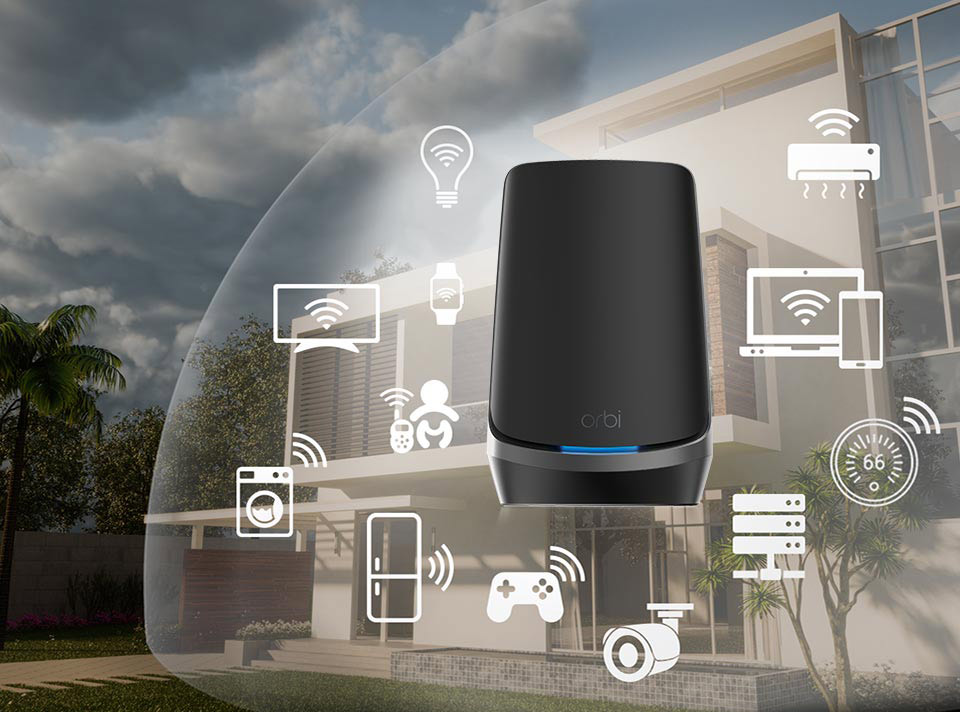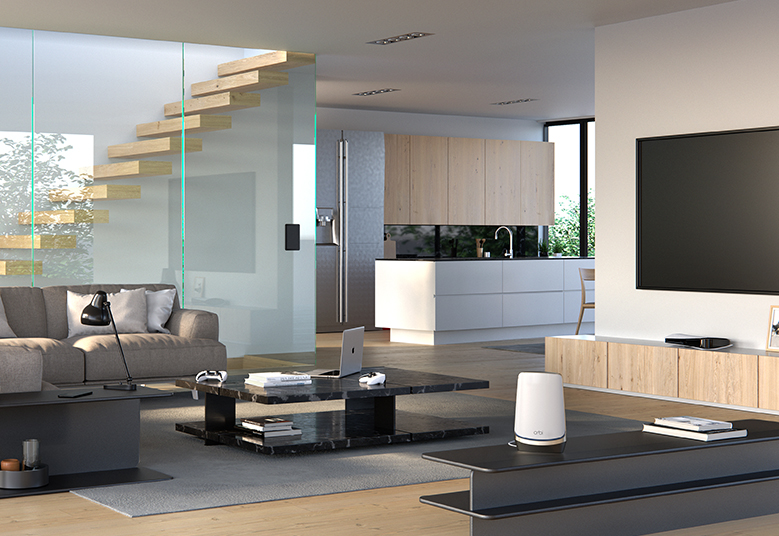Netgear’s new Wi-Fi 6E router costs $1,500 — wait, what?
Mind-numbing speeds and advanced features come at a hefty price.

The home networking category is no stranger to big numbers and impressive claims, but the new Netgear Orbi Quad-Band Mesh WiFi 6E mesh system may have you doing a double take, thanks to its $1,499.99 price tag. That's more than twice what you'll pay for the already-impressive Orbi Wi-Fi 6 (RBK852), one of the best mesh networking kits you can buy.
For a three-pack mesh system, what on earth could justify paying $500 per unit? Only the most impressive specs and promised performance we've ever seen. Let's run down the highlight list.
- Check out the best mesh routers we've reviewed
- Tested: Best Wi-Fi 6 routers (including Wi-Fi 6e)
- Latest: Apple 'Unleashed' event set for Oct 18 — how to watch and what to expect
The newest Orbi isn't the first Wi-Fi 6E mesh router to hit the market (though it's one of the earliest to arrive), but it is the first quad-band mesh router we've seen, and the first to offer that combination of both in a mesh system.
Wi-Fi 6E, for those who don't feverishly follow every technical change in router technology, is a major step up from the already speedy Wi-Fi 6 standard, adding a new 6GHz transmission band to the 2.5 GHz and 5GHz bands already in common usage. (Check out our article What is Wi-Fi 6E: Routers, devices and how it’s better than Wi-Fi 6 to learn more.) It's the same standard used by the award-winning Netgear Nighthawk RAXE500, but in a multi-device mesh system for bigger homes.
Unlike those common slices of spectrum, the 6GHz band is virtually unused in consumer products, so it's not just an extra lane on a crowded road — it's a four-lane highway, and 6E-equipped devices have it all to themselves. Congestion is non-existent, especially in crowded environments, like apartment complexes and cities.
The quad-band designation is just as important. Where most mesh systems use one or two wireless bands, the new quad-band Orbi uses three for users — 2.4, 5 and 6GHz — with a fourth 5GHz band dedicated for sharing data between the router and satellite units for an AXE1100 rating. This backhaul channel eliminates the bottlenecks encountered when moving data between devices, ensuring that you get the best speeds for your devices, no matter where you are in your home.

Netgear steps that up further with 12 internal antennas, supporting up to 16 simultaneous Wi-Fi streams, meaning that this mesh kit will be able to keep up, even when you have a house full of guests all trying to get online. For a household full of devices that connect and stream, it's the answer to today's increased bandwidth demands, easily supporting TV streaming, gaming, video chat and content uploading without slowing anything down.
Sign up to get the BEST of Tom's Guide direct to your inbox.
Get instant access to breaking news, the hottest reviews, great deals and helpful tips.
The rest of the Orbi Quad-Band Mesh WiFi 6E RBKE960 series spec list only emphasizes the supreme capabilities offered by the new mesh system. The Orbi can handle up to 10.8 Gigabits per second, and covers up to 9,000 square feet with the standard 3-pack of devices. The main unit can accommodate an impressive 10 Gigabit WAN, and every unit has a 2.5 Gigabit port, as well as multiple Gigabit Ethernet connections for connecting PCs, game consoles, and any other wired device at top speeds.
Netgear then adds its Smart Parental Controls and Armor security, along with easy set-up and management through the Orbi App.

The new Orbi even comes in black, if you want something different from the dozens of white networking devices on the market. The black edition of the Orbi Quad-band WiFi 6E is a limited edition, and offered only through the Netgear website, but doesn't cost any more than the standard white model.
The Orbi Quad-band 6e mesh kit sells as a three-pack (one main router with two satellite units) for $1,499.99 (£1,499 / €1,699). The standard three pack (model number RBKE963) and the limited edition black version (model number RBKE963B) both sell for $1,499 through Netgear.com, and the white model will be coming to major retailers later this month. A smaller two-pack (one main router with one satellite unit) will be selling for $1,099 and single add-on satellite units (model RBSE960) will sell for $599 each.
But the real question is whether anyone even needs this level of performance. And for most people, the answer is no. Gigabit speeds are usually the fastest available to most broadband customers, and the biggest benefit from Wi-Fi 6E will come from Wi-Fi 6E-equipped devices, which are still few and far between. That all translates into unused capability, effectively serving as a really, really good Wi-Fi 6 mesh kit for most users and devices.
Is that worth the extra $1,000 or so you'll pay for this quad-band behemoth? Not now, but maybe in a year or two. As data-intensive uses like 8K streaming, online gaming and the ever growing demands of online life grow rapidly, it won't be long before this sort of performance goes from overkill to essential, making this a great (if expensive) way to future-proof your home network.
We'll be reviewing the new Orbi quad-band Wi-Fi 6e mesh system in the coming weeks, so keep an eye out for our in-depth evaluation.
Brian Westover is currently Lead Analyst, PCs and Hardware at PCMag. Until recently, however, he was Senior Editor at Tom's Guide, where he led the site's TV coverage for several years, reviewing scores of sets and writing about everything from 8K to HDR to HDMI 2.1. He also put his computing knowledge to good use by reviewing many PCs and Mac devices, and also led our router and home networking coverage. Prior to joining Tom's Guide, he wrote for TopTenReviews and PCMag.

